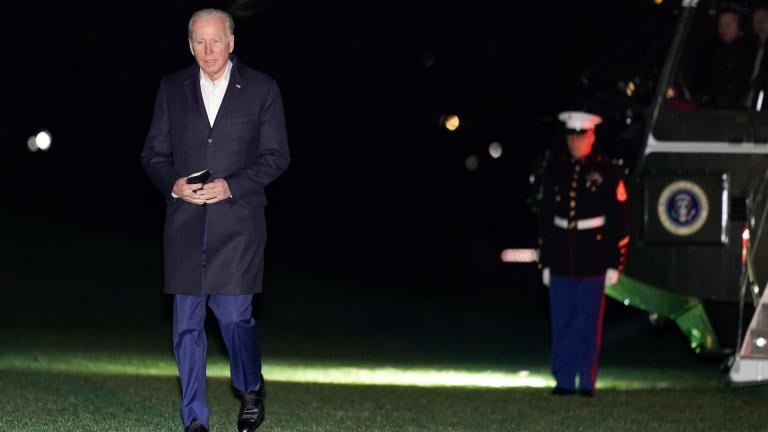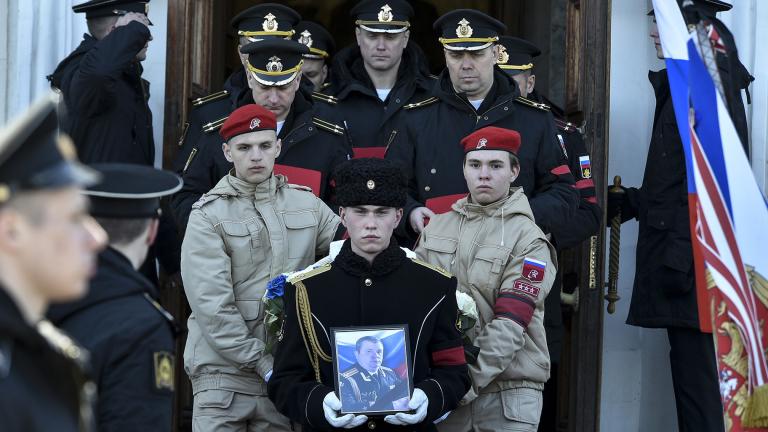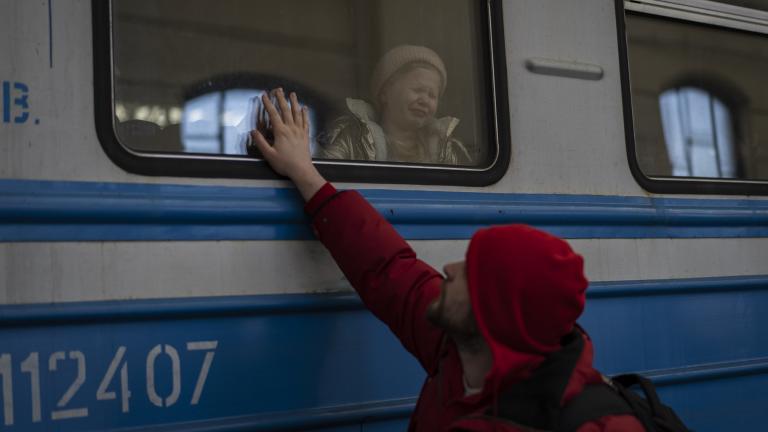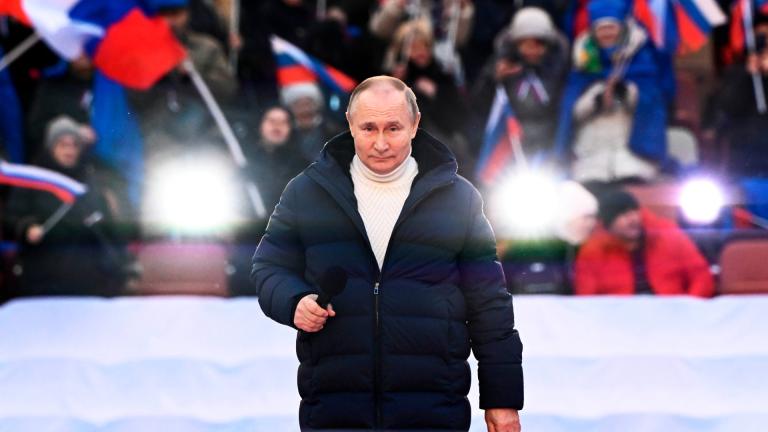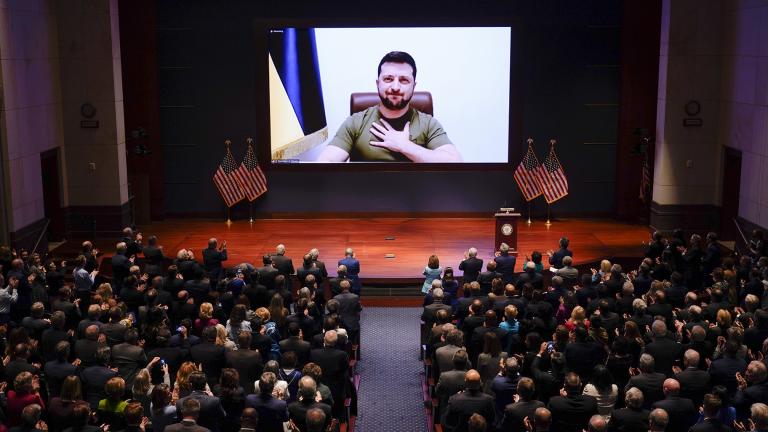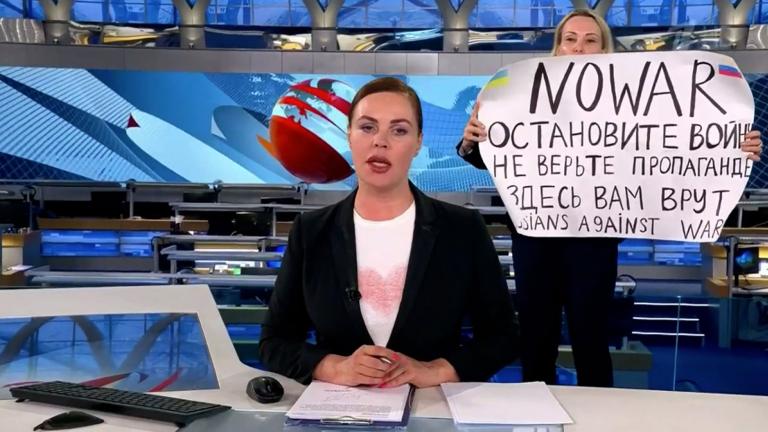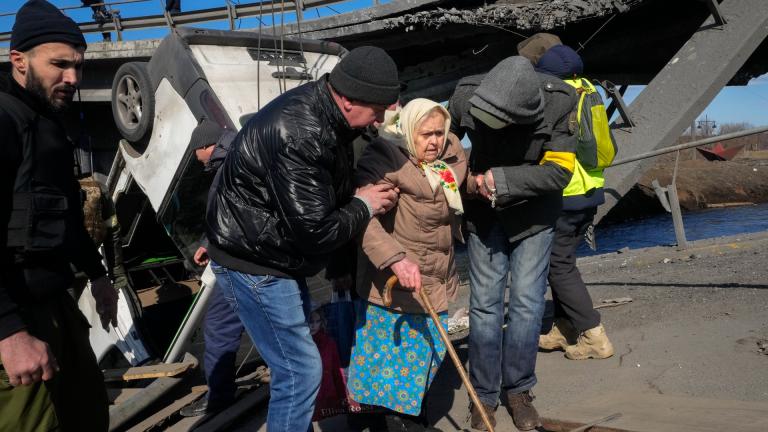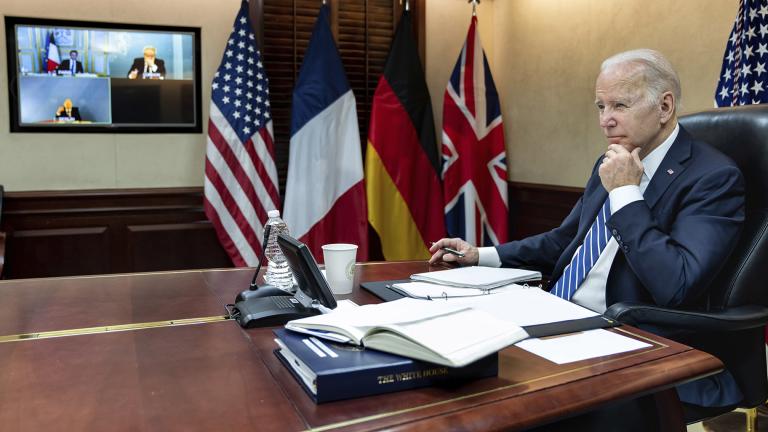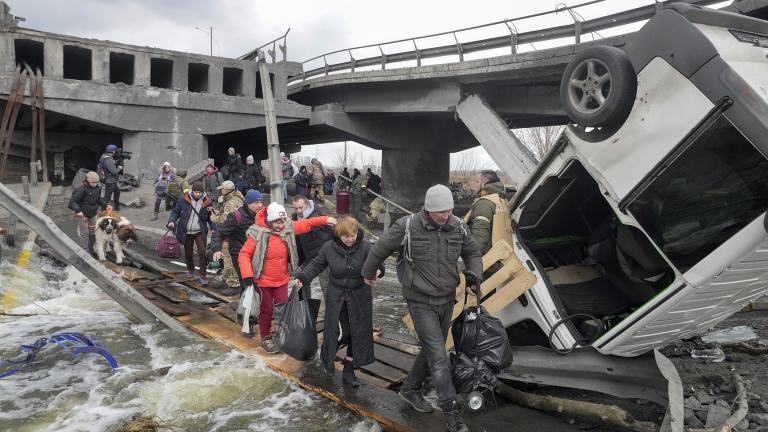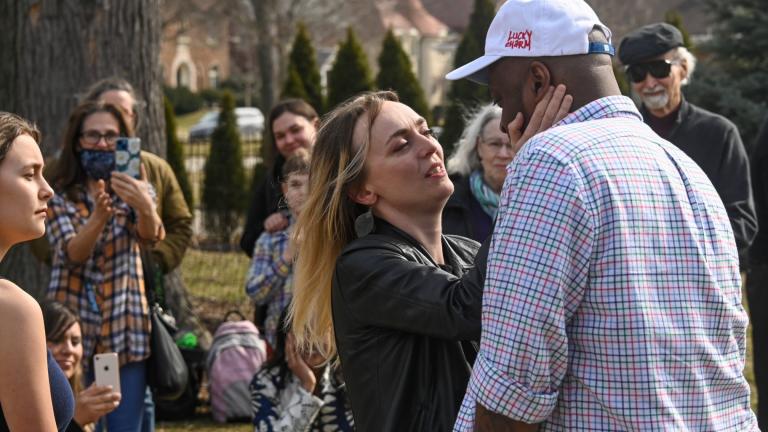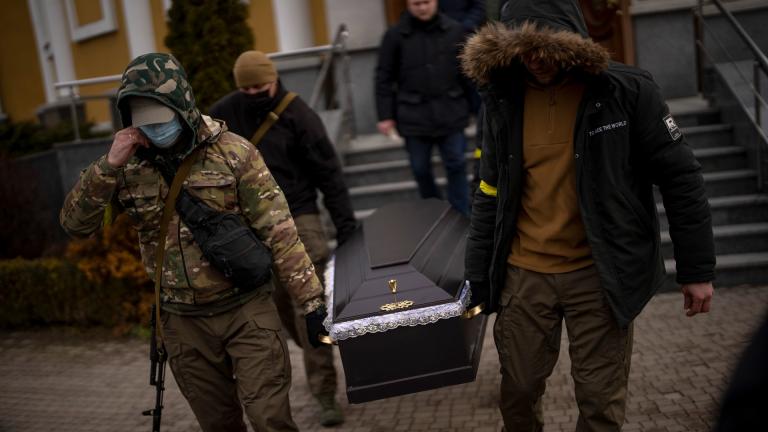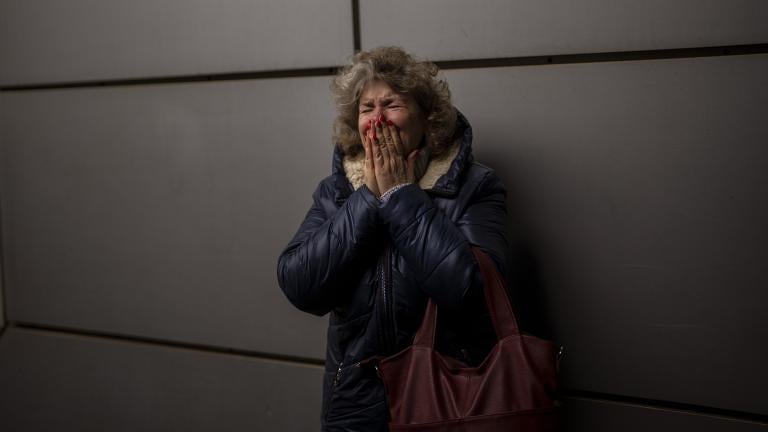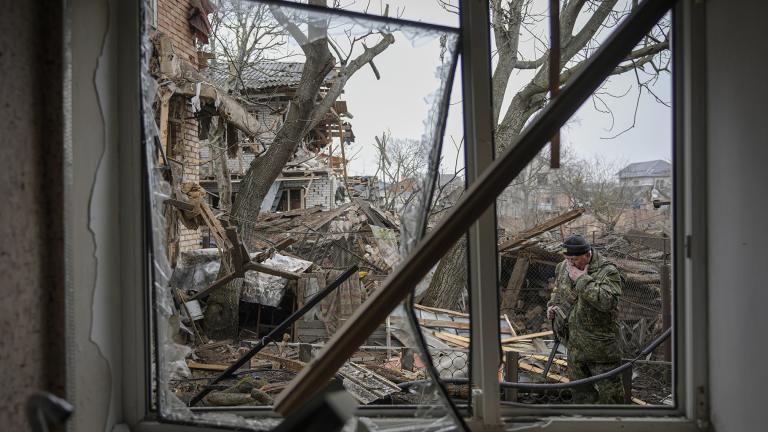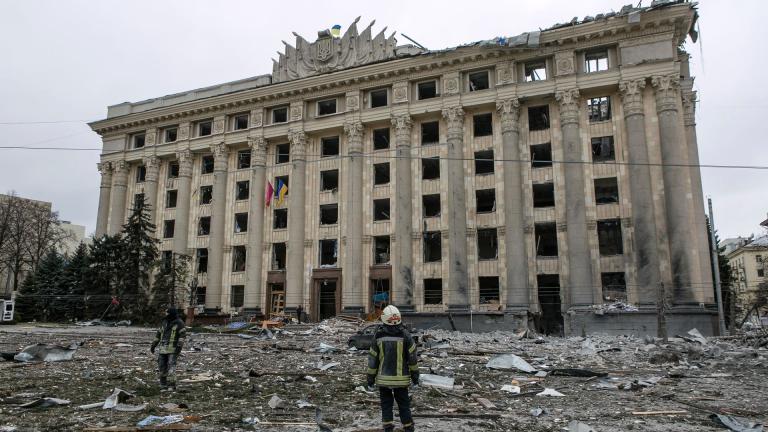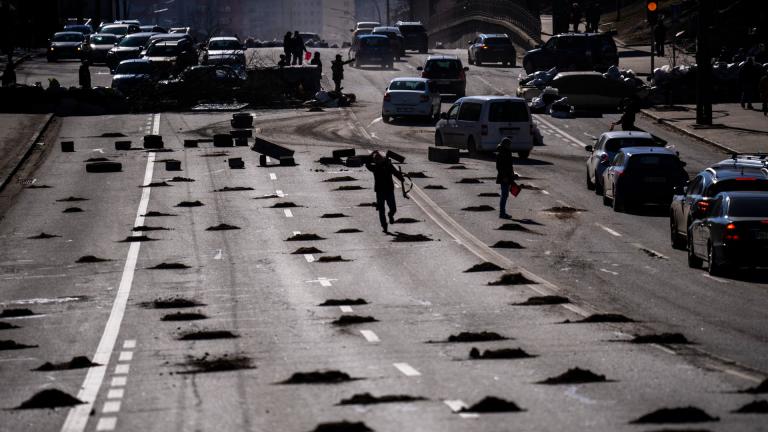With the last nine, unscripted words of an impassioned speech about Russia's aggression in Ukraine, President Joe Biden created a troubling distraction, undermining his effectiveness as he returned home to face restive Americans who strongly disapprove of his performance on issues that matter most to them.
Vladimir Putin
A senior NATO military official said the alliance’s estimate was based on information from Ukrainian authorities, what Russia has released — intentionally or not — and intelligence gathered from open sources. The official spoke on condition of anonymity under ground rules set by NATO.
Civilians fleeing Mariupol said the city was under relentless bombardment, with block after block of destroyed buildings and corpses in the streets. But the Kremlin’s ground offensive in other parts of the country advanced slowly or not at all, knocked back by lethal Ukrainian hit-and-run attacks.
Vladimir Putin appeared at a huge flag-waving rally at a Moscow stadium Friday and lavished praise on his troops fighting in Ukraine, three weeks into the invasion that has led to heavier-than-expected Russian losses on the battlefield and increasingly authoritarian rule at home.
Livestreamed into the Capitol complex, Ukrainian President Volodymyr Zelenskyy said the U.S. must sanction Russian lawmakers and block imports. But rather than an enforced no-fly zone that the White House has resisted, he instead sought other military aid to stop Russian assault.
Dmitry Zakhvatov, a lawyer who had formerly been representing Marina Ovsyannikova, told CNN that the administrative charge was based solely on a video statement that she recorded prior to appearing with an anti-war poster on Channel One.
Russia widened its offensive in Ukraine on Friday, striking airfields in the west and a major industrial city in the east, while the huge armored column that had been stalled for over a week outside Kyiv was on the move again, spreading out into forests and towns near the capital.
The action follows pleas by Ukrainian President Volodymyr Zelenskyy to U.S. and Western officials to cut off the imports, which had been a glaring omission in the massive sanctions put in place on Russia over the invasion.
A third round of talks between the two sides ended with a top Ukrainian official saying there had been minor, unspecified progress toward establishing safe corridors that would allow civilians to escape the fighting. Russia’s top negotiator said he expects those corridors to start functioning Tuesday.
Food, water, medicine and almost all other supplies were in desperately short supply in the port city of Mariupol, where Russian and Ukrainian forces had agreed to an 11-hour cease-fire that would allow civilians and the wounded to be evacuated. But Russian attacks quickly closed the humanitarian corridor, Ukrainian officials said.
Maria and her fiancé, David, married Saturday before about 20 people in the backyard of an Oak Park home. On Monday, she plans to fly to Poland, then make her way to the Ukrainian border, ultimately aiming to volunteer to fight for her home country.
Russian troops Friday seized the biggest nuclear power plant in Europe after a middle-of-the-night attack that set it on fire and briefly raised worldwide fears of a catastrophe in the most chilling turn in Moscow’s invasion of Ukraine yet.
Moscow’s advance on Ukraine’s capital in the north has apparently stalled, with a huge armored column outside Kyiv at a standstill. And stiffer than expected resistance from the outmanned, outgunned Ukrainians has staved off the swift victory that Russia may have expected.
Russia reported its military casualties for the first time since the invasion began last week, saying nearly 500 of its troops had been killed and almost 1,600 wounded. Ukraine insisted Russia’s losses were far higher but did not immediately disclose its own casualties.
Russian forces stepped up their attacks on crowded urban areas Tuesday, bombarding the central square in Ukraine’s second-biggest city and Kyiv’s main TV tower in what the country’s president called a blatant campaign of terror.
An embattled Ukraine moved to solidify its bond with the West on Monday by signing an application to join the European Union, while the first round of Ukraine-Russia talks aimed at ending the fighting concluded with no immediate agreements.

